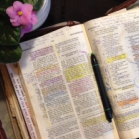-
Recently Browsing 0 members
- No registered users viewing this page.
-
Similar Content
-
- 11 replies
- 2,283 views
-
- 0 replies
- 463 views
-
- 0 replies
- 740 views
-
- 0 replies
- 429 views
-
- 1 reply
- 567 views
-





Recommended Posts